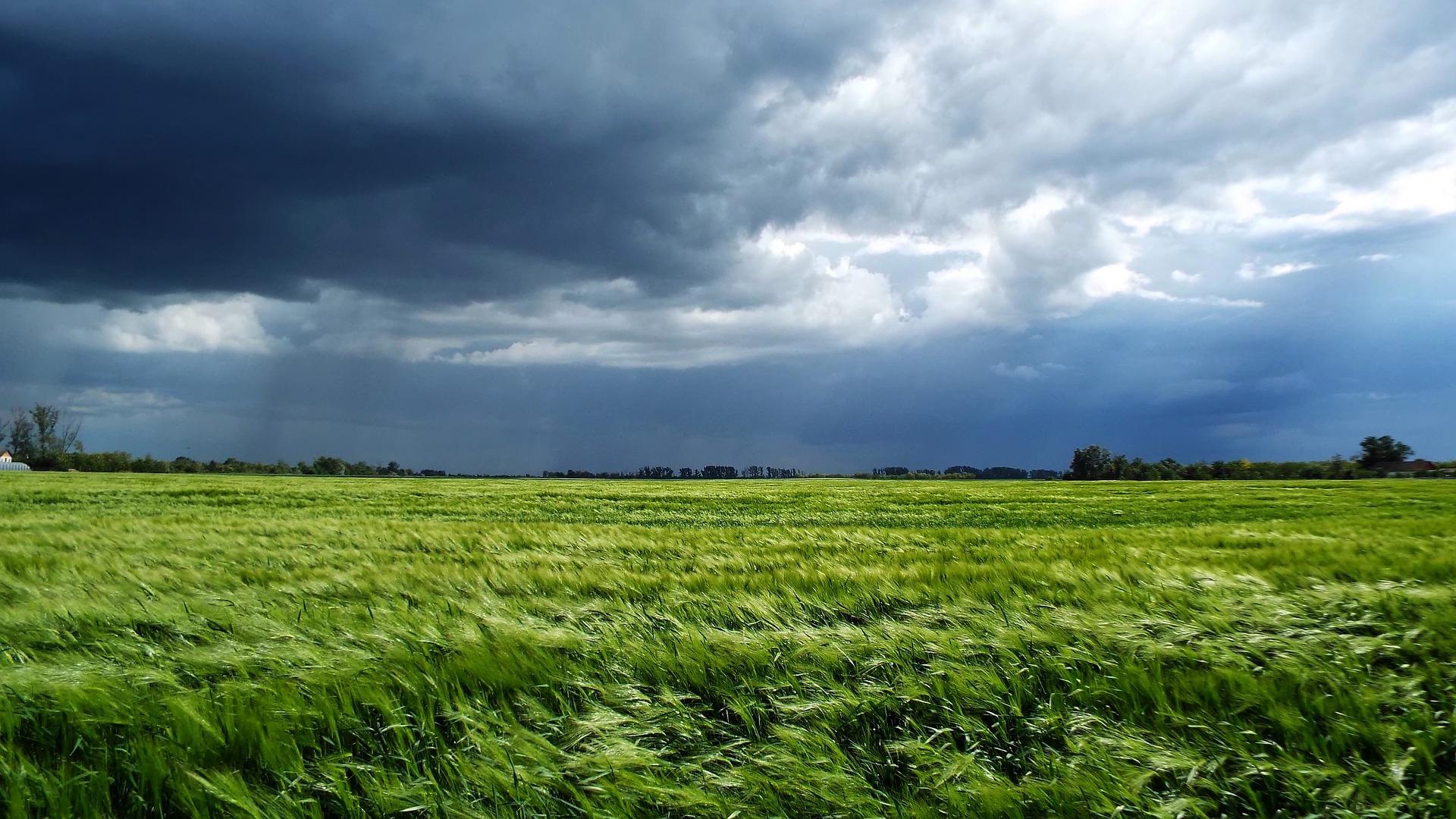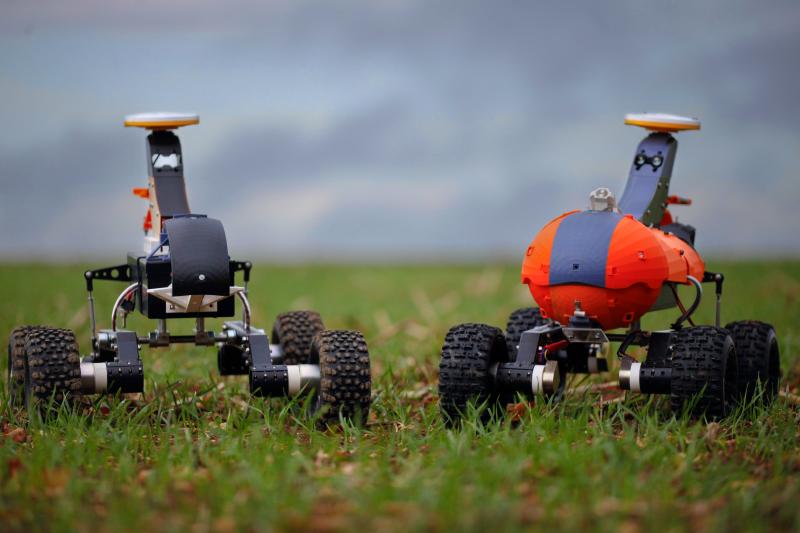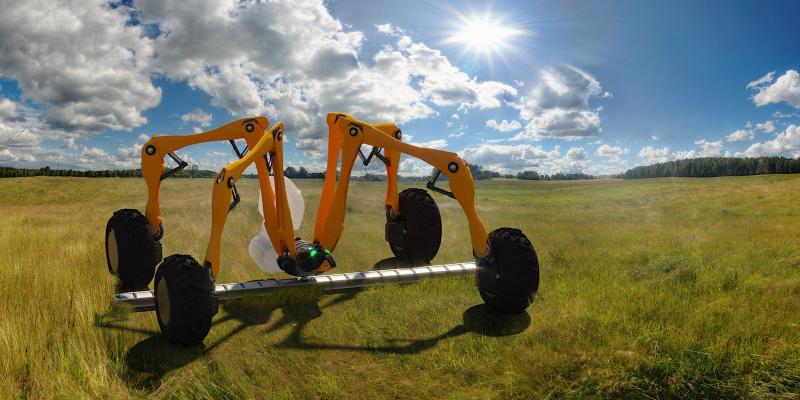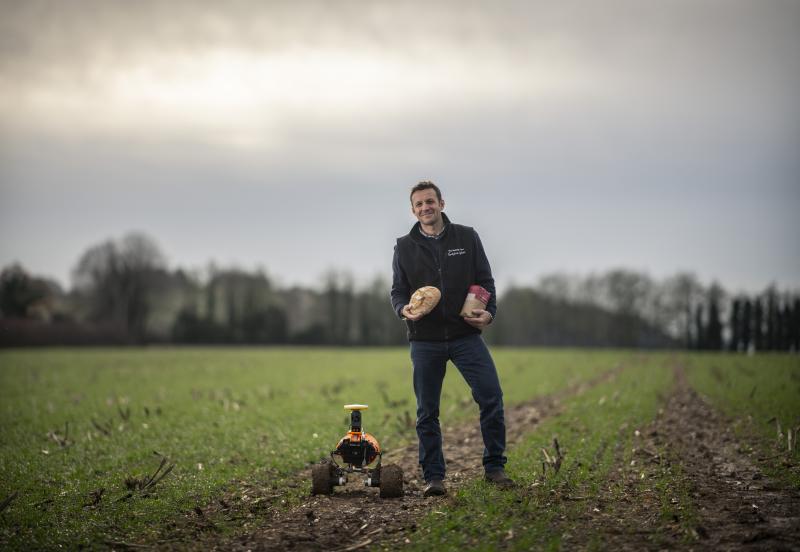Sandra Bell, Nature campaigner15 Nov 2019
Nature and climate crises – we need solutions now
The evidence that pesticides are a key driver of biodiversity loss keeps mounting. We know we must reverse the destruction of nature just as much as we need to tackle climate change.
Dousing the land with toxic chemicals should belong in the past. But despite widespread agreement that we should be protecting crops without harming nature, pesticide use is still rising.
Friends of the Earth has been sceptical that high-tech gizmos are the solution farmers need to cut chemical use. But there have been some exciting developments in technology, with claims that artificial intelligence (AI) and robots could cut chemical use by up to 95%. I decided to find out what all the fuss was about.
A role for robots?
Robots are being developed to carry out a range of farming tasks. The technology is probably most developed for crop harvesting, which has largely been driven by labour shortages in fruit picking.
But can robots help replace chemical pesticides? There are a variety of fascinating trials in universities around the country, but the team of robots being developed by tech start-up the Small Robot Company(SRC) is the closest to becoming a commercial reality.
Tom, Dick and Harry
SRC is developing a team of robots – Tom, Dick and Harry – to carry out a range of tasks, from planting seeds to monitoring crops and controlling weeds. The brains of the operation will be provided by Wilma – an AI operating system – to help farmers make key decisions and provide instructions to Tom, Dick and Harry. SRC is currently in field trials, with its early prototype monitoring robot Tom in 20 farms across the UK.
I spoke to Ben Scott-Robinson, co-founder of the Small Robot Company, to find out more.
How close are you to having a weeding robot that can replace a pesticide?
Ben “We want to provide a commercial service of weeding robots in wheat crops by autumn 2020. Already our AI can distinguish between emerging wheat and broad leaved weeds in the field"
The next development milestone will be non-chemical weeding with an initial prototype anticipated at the end of this year. Early field trials are due to start in 2020"1
"Dick the weeding robot will zap the weeds with electricity, significantly cutting the need for herbicides"
So, right now your robots can distinguish some weeds from wheat – will you be developing the technology to be even more precise?
Ben "At present our robots can look at a field and distinguish between wheat, weeds, and "other". " This level of detail is a challenge for humans - and even other robots! -so to differentiate is a significant milestone".
"Our vision is that our robots will help farmers to see and do things differently – leaving beneficial wild plants where they are and only taking out specific problematic weeds that will out-compete the crop. This will be so much better for pollinators and other invertebrates".
“In the next year or so the AI technology will be able to identify particularly challenging weeds – like blackgrass – and target them. The key to all of this is that we’ll have a robot on the ground – not a drone. This is important to be able to monitor what’s going on – with every plant”.
What other developments we should be looking out for?
Ben “We’re developing the AI to detect disease inside a plant before it produces spores – meaning farmers would be dealing with the problem before it spreads, which would normally require spraying the whole crop. Instead a robot will deliver a precise dose of fungicide only where needed. No one else has the technology to deliver this at the moment, but we could be making it commercially available in the next two years”.
Do robots have a place in organic or agro-ecological systems where the emphasis is on preventing pest and weed pressure?
Ben “Currently farmers are facing the challenge that we’ve had a system that allows the pests to proliferate when everything else has been wiped out. This has to change. But we need a mix of approaches – agro-ecological systems can be helped by technology and we do need to keep some chemicals available.
“We’re trialling the robots with both conventional and organic farmers. Of course, there’s more urgency for conventional farmers to find solutions, especially as they see that bans on particular pesticides are increasingly likely. But organic farmers are also looking for sustainable solutions for when they suffer from outbreaks of pests”.
Ben emphasises SRC’s belief that farmers are integral to solving environmental issues. Their strategy is to work closely with farmers on farm to develop the technology. “It needs to work the way farmers want it to if they are to use it”.
Would a government target to cut pesticides help boost more innovations like these?
Ben “Policy and regulation do drive innovation. There needs to be a consistent and clear steer from the government. It’s hard to develop products for the future in the face of uncertainty. Will there be bans on particular products? Or targets for better soil health? The uncertainty around the Agriculture Bill has been very unhelpful”.
Should the government be putting more funding into innovative solutions to cut pesticides?
SRC has received government funding, which has helped it develop the technology. But there’s also been a lot of uncertainty and delay with government funding and Brexit has also caused more uncertainties about funding.
Ben “With committed funding we could have advanced the ability to identify specific problem weeds, helping biodiversity by leaving more wild plants on our farms”.
What do farmers think?
It was great to hear from Ben about these exciting developments but what do farmers think? SRC works with a group of 20 farmers, who’ve paid for their service in advance and have a say in what SRC do. Farmers have helped develop the technology and the business model. This has led to SRC’s plans to hire out its team of robots to farmers when there’s a need, rather than expecting them to each invest in their own machines.
Andrew Ward, arable farmer and member of the SRC Farmer Advisory Group, is convinced – “We’re now on the cusp of a fourth agricultural revolution, with food production and environmental care at its heart. We can't achieve this without robotics and automation becoming part of everyday farm life. Cost of production is rising at an alarming rate. Applying products to 100% of a field needs to change - my zero-tolerance approach to blackgrass is working. The next stage is to use robotics to only apply herbicides to those plants which need them."
Tom Jewers, another member of the advisory group, says “Non-chemical weeding is the holy grail. The farmer’s crop protection toolbox is under ever growing pressure. Legislation is leaving us increasingly short of options".
SRC has been working closely with Waitrose's own farm - the Leckford Estate, Andrew Hoad, the farm's Head of Estate says “This technology could be truly groundbreaking and has the potential to shape how we farm in the future. By helping us be more precise and targeted in controlling weeds and managing pests, this next generation of farming robots could in turn help us protect biodiversity on our land and preserve the natural environment for future generations.”
We desperately need to develop ways to reduce the need for expensive plant protection products and artificial fertilisers. The ability to treat only the plants that actually need it is game-changing.
Conclusions – are robots the way forward for cutting pesticides?
Having talked to Ben, I’m excited by how far advanced the technology is and its potential to significantly cut chemical use. I’m also impressed by SRC’s approach to involving farmers.
So what do I think? To tackle the threats of climate change and ecological collapse, farming will have to become sustainable in every sense of the word – we can’t afford to focus on one challenge in isolation. So it’s also good to know that SRC is looking at the potential to help cut other impacts of farming too. The “no till” planting technology they’re developing will remove the need for ploughing. Using smaller, lighter and more agile machines reduces compaction and soil damage as well as the energy associated with cultivation.
Affordable and practical solutions
Toxic chemicals do not have a place in a sustainable farming future. But farmers will need affordable and practical solutions to reduce their reliance on chemicals while still being able to protect their crops and produce healthy food. High-tech gizmos are not a silver bullet – but I’m convinced that AI and robotics should have a place in the farmer’s toolbox.
Of course, this doesn’t change or contradict my view that farmers need support to adopt agro-ecological approaches for the whole farm. To help prevent problems building up in the first place, these should include methods of farming such as more diverse rotations to reduce pest and disease incidence, and working with nature to tackle pest problems by building up natural predators.
Innovation comes in many forms and in this series of blogs we’ll also look at some emerging low-tech ideas.
- 1https://www.smallrobotcompany.com/press-releases/2019/11/6/small-robots-launches-commercial-weed-mapping-servicenbsp





